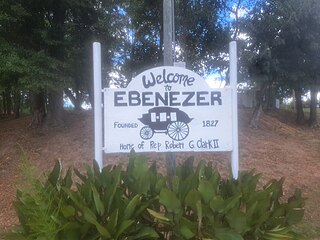
The civil rights movement was a social movement and campaign in the United States from 1954 to 1968 that aimed to abolish legalized racial segregation, discrimination, and disenfranchisement in the country, which was most commonly employed against African Americans. The movement had origins in the Reconstruction era during the late 19th century, and had modern roots in the 1940s. After years of direct actions and grassroots protests, the movement made its largest legislative and judicial gains during the 1960s. The movement's major nonviolent resistance and civil disobedience campaigns eventually secured new protections in federal law for the civil rights of all Americans.

James Howard Meredith is an American civil rights activist, writer, political adviser, and United States Air Force veteran who became, in 1962, the first African-American student admitted to the racially segregated University of Mississippi after the intervention of the federal government. Inspired by President John F. Kennedy's inaugural address, Meredith decided to exercise his constitutional rights and apply to the University of Mississippi. His goal was to put pressure on the Kennedy administration to enforce civil rights for African Americans. The admission of Meredith ignited the Ole Miss riot of 1962 where Meredith's life was threatened and 31,000 American servicemen were required to quell the violence – the largest ever invocation of the Insurrection Act of 1807.

Holmes County is a county in the U.S. state of Mississippi; its western border is formed by the Yazoo River and the eastern border by the Big Black River. The western part of the county is within the Yazoo-Mississippi Delta. As of the 2020 census, the population was 17,000. Its county seat is Lexington. The county is named in honor of David Holmes, territorial governor and the first governor of the state of Mississippi and later United States Senator for Mississippi. Holmes County native, Edmond Favor Noel, was an attorney and state politician, elected as governor of Mississippi, serving from 1908 to 1912.

Lexington is a city in and the county seat of Holmes County, Mississippi, United States. The county was organized in 1833 and the city in 1836. The population was 1,731 at the 2010 census, down from 2,025 at the 2000 census. The estimated population in 2018 was 1,496. It has declined from its high of 3,198 in 1950 due to the expansion of industrial-scale agriculture.

Theodore Gilmore Bilbo was an American politician who twice served as governor of Mississippi and later was elected a U.S. Senator (1935–1947). Bilbo was a demagogue and filibusterer whose name was synonymous with white supremacy. Like many Southern Democrats of his era, Bilbo believed that black people were inferior; he defended segregation, and was a member of the Ku Klux Klan, the United States' largest white supremacist terrorist organization. He also published a pro-segregation work, Take Your Choice: Separation or Mongrelization.

John Bell Williams was an American Democratic politician who represented Mississippi in the U.S. House of Representatives from 1947 to 1968 and served as the 55th governor of Mississippi from 1968 to 1972.
The Mississippi Freedom Democratic Party (MFDP), also referred to simply as the Freedom Democratic Party, was an American political party that existed in the state of Mississippi from 1964 to 1968 during the Civil Rights Movement. Created as the partisan political branch of the Freedom Democratic organization, the party was organized by African Americans and White Americans from Mississippi who were sympathetic to the Civil Rights Movement. The organization aimed to challenge the established power of the state Mississippi Democratic Party, which then opposed the Civil Rights Movement and only allowed participation by White Americans.

Edmund Favor Noel was an American attorney and politician who served as governor of Mississippi from 1908 to 1912. The son of an early planter family in Mississippi, he became a member of the Democratic Party.

Aaron Henry was an American civil rights leader, politician, and head of the Mississippi branch of the NAACP. He was one of the founders of the Mississippi Freedom Democratic Party, which tried to seat their delegation at the 1964 Democratic National Convention.

The Mississippi Democratic Party is the affiliate of the Democratic Party in the state of Mississippi. The party headquarters is located in Jackson, Mississippi.
In the United States, black conservatism is a political and social movement rooted in African-American communities that aligns largely with the American conservative movement, including the Christian right. Black conservatism emphasizes social conservatism, traditionalism, patriotism, capitalism, and free markets. What characterizes a 'black conservative' has changed over time, and proponents do not necessarily share the same political philosophy.

The Government of Mississippi is the government of the U.S. state of Mississippi. Power in Mississippi's government is distributed by the state's Constitution between the executive and legislative branches. The state's current governor is Tate Reeves. The Mississippi Legislature consists of the House of Representatives and Senate. Mississippi is one of only five states that elects its state officials in odd numbered years. Mississippi holds elections for these offices every four years in the years preceding Presidential election years.

Ebenezer is an unincorporated community located in Holmes County, Mississippi, United States. Ebenezer is located at the western end of the eastern segment of Mississippi Highway 14, approximately 10 miles (16 km) south of the county seat of Lexington and 4 miles (6.4 km) approximately west of Goodman.

Eureka Masonic College, also known as The Little Red Schoolhouse in Richland, Holmes County, Mississippi, is widely known as the birthplace of the Order of the Eastern Star, created by Robert Morris.

Mississippi Industrial College was a historically black college in Holly Springs, Mississippi. It was founded in 1905 by the Mississippi Conference of the Colored Methodist Episcopal Church. After desegregation of community colleges in the mid-20th century, it had trouble competing and eventually closed in 1982. The campus was listed as a historic site on the National Register of Historic Places in 1980 and was acquired by Rust College in 2008.
Bryant W. Clark is an American politician from Mississippi. A member of the Democratic Party, Clark is a member of the Mississippi House of Representatives, and represents the 47th district. He has served in the Mississippi House since 2004. He succeeded his father, Robert G. Clark Jr.
Douglas Leavon Anderson was an American educator and politician from Mississippi. Anderson, a Democrat, was first elected to the Mississippi House of Representatives in 1976. He served in that office until 1980, when he won election to the Mississippi State Senate. He served in the State Senate until 1992.

Wilson Floyd Minor was an American journalist and columnist who covered events in Mississippi.

Linda F. Coleman is an American judge, attorney, and former lawmaker from the state of Mississippi. She has served as Circuit Court Judge of Mississippi's Eleventh Circuit Court District since 2016.















